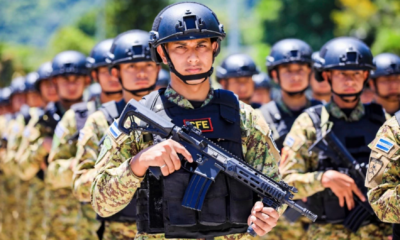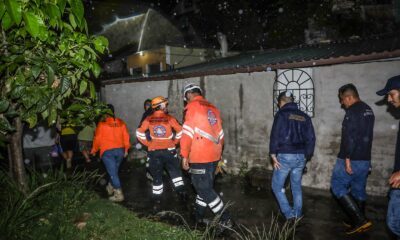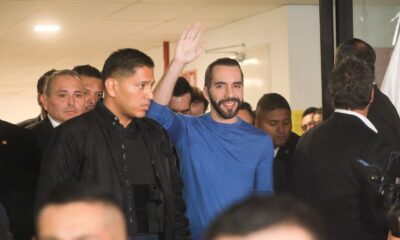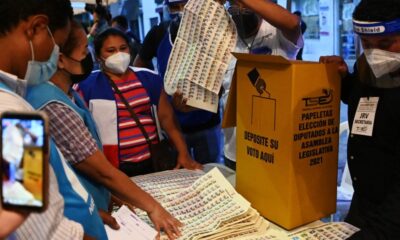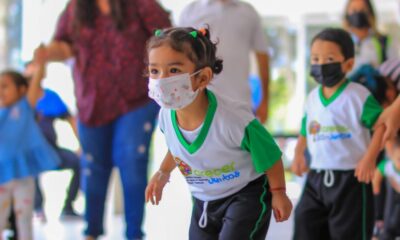Central America
President Bukele’s government has transformed El Salvador’s integrated national health system
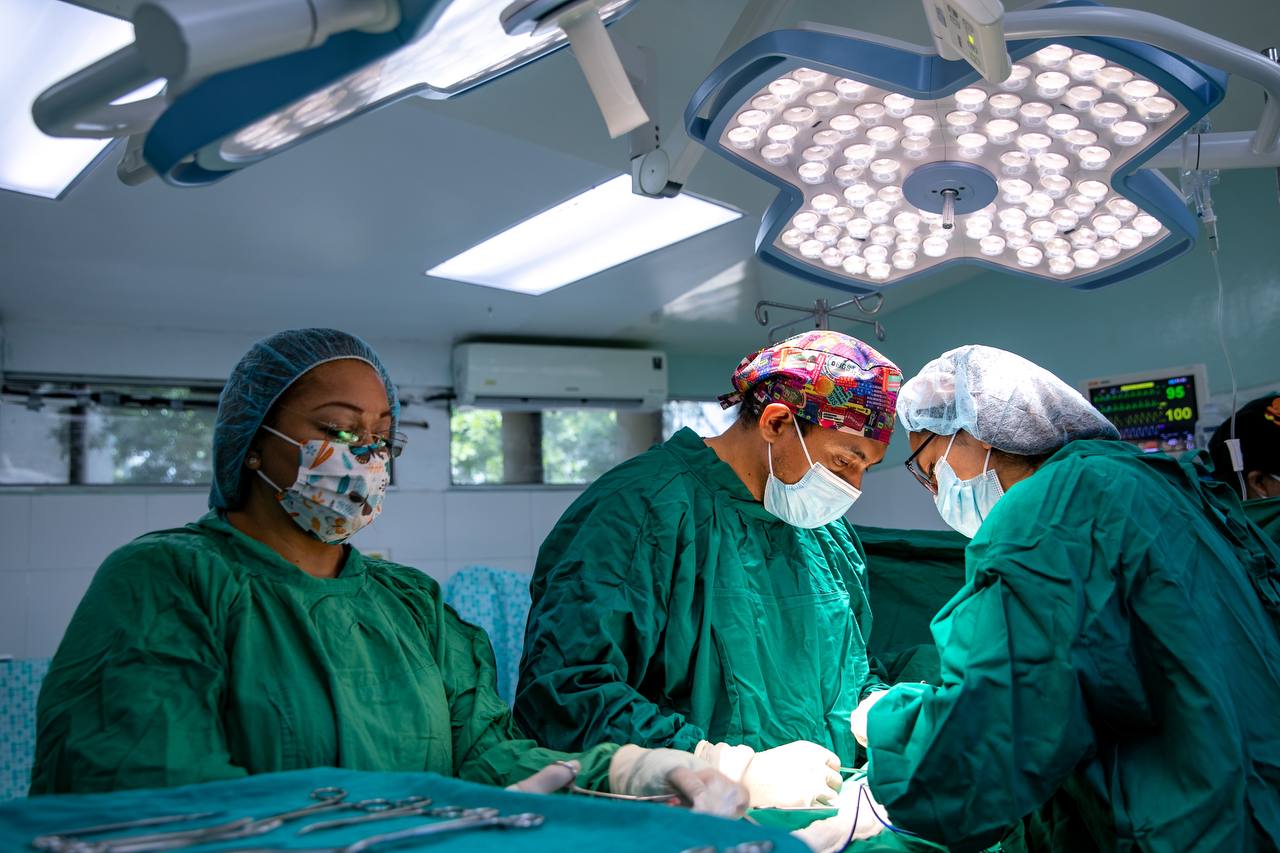
May 31 |
The National Integrated Health System (SIS) has been transformed during the administration of the President of the Republic, Nayib Bukele, through different actions that include modernization of infrastructure, equipment and digitalization of processes.
For decades, Salvadorans suffered from lack of care, hospitals and health units in poor condition and lack of suitable equipment for diagnosis and medical procedures, digitized care and modern technology.
Currently, modern, state-of-the-art equipment has been provided for X-rays, MRIs and cardiac interventions with a biplanar arc that is unique in the country and in the region.
“Assured connectivity. The Integrated Health System is changing the care we provide in hospitals, health units and in the territory, since it allows us to keep better control of the patient and give him/her the appropriate follow-up regardless of the facility where he/she goes to consult,” said the Minister of Health, Francisco Alabi, recently.
The issue of connectivity was raised by the Vice-Minister of Health Management and Development, Carlos Alvarenga, during his participation in the 76th World Health Assembly, held in Geneva, Switzerland.
“We have interconnected all health facilities, generated the electronic health record and other important elements of digital transformation that are the basis for transforming the country with a leap in quality,” said Alvarenga.
Similarly, in terms of infrastructure, the government of President Bukele built a walkway with all the conditions for the transfer of patients between the tower of the Benjamin Bloom National Children’s Hospital and the outpatient building of this medical center.
This has also been equipped with a biplanar arc angiograph for cardiac catheterization.
Likewise, after 30 years, the Zacamil National Hospital was intervened and equipped with technology and new areas, as well as artificial intelligence through Temi, a robot assistant.
On the other hand, another of the debts settled has been the inauguration of the Specialized Outpatient Care Center La Ceiba, of the Salvadoran Social Security Institute (ISSS), which has a capacity to care for more than 1,100 patients per day.
Due to the security measures implemented by President Bukele, health services have also been brought closer to communities that for decades were dominated by gangs.
Similarly, the teaching sector will benefit from the construction of the first Magisterial Hospital of the Instituto Salvadoreño de Bienestar Magisterial (ISBM), for which more than $2.2 million was approved by the Legislative Assembly for the purchase of the land.
Central America
Guatemala’s Attorney General Consuelo Porras Loses Bid for Constitutional Court Seat

Guatemala’s attorney general, Consuelo Porras, who has been sanctioned by the United States over corruption allegations, lost a key vote on Monday in which a public university selected two of the 10 magistrates for the country’s highest constitutional court. However, she could still seek a seat through another nominating body.
The election of five full magistrates and five alternates to the Corte de Constitucionalidad (CC) is taking place gradually over more than two months and is considered crucial in the ongoing struggle for control of Guatemala’s judiciary, which critics say has long been influenced by a political and economic elite accused of corruption.
According to results announced at a press conference, the governing council of the Universidad de San Carlos de Guatemala (USAC) rejected Porras, who had applied as either a full or alternate magistrate, and instead chose two candidates aligned with the university rector. The vote was held at a hotel in Antigua, about 35 kilometers from the capital.
Despite the setback, Porras — whose term as attorney general ends on May 16 — could still be nominated to the Constitutional Court by the Corte Suprema de Justicia, which appoints two magistrates. The remaining six are selected by the president, the bar association and Congress.
“It’s always a possibility,” the 72-year-old lawyer said days earlier when asked by reporters whether she would seek nomination through another institution if she lost the USAC vote.
Porras has been sanctioned by Washington and the European Union for allegedly attempting two years ago to block the inauguration of President Bernardo Arévalo and for pursuing legal actions against anti-corruption prosecutors, judges, journalists and social leaders since taking office in 2018.
The USAC vote was controversial because most members of the university’s governing council are serving beyond the expiration of their terms. Students, academics and social activists staged protests against Porras’ candidacy.
Central America
Teens visit ETESAL substation to learn about responsible energy use

Within the framework of World Energy Day, teenagers from the institutional care center Ciudad Niñez y Adolescencia (CNA), run by the Consejo Nacional de la Primera Infancia, Niñez y Adolescencia (Conapina), took part in an educational visit to a substation operated by Empresa Transmisora de El Salvador (ETESAL) in Santa Ana.
The aim of the activity was to give participants first-hand knowledge of how the country’s electricity transmission system works and to highlight the importance of responsible energy use.
During the tour, the group learned about the process that delivers electricity to homes, businesses, and industries. They were also introduced to specialized technical equipment and the safety measures required to ensure an efficient and reliable service.
Before the guided visit, the teenagers attended two informative talks and an environmental awareness session focused on the relevance of responsible energy consumption and its impact on the environment.
According to Nelson Menjívar, head of Conapina’s programs unit, the initiative serves a dual purpose. “It has two objectives: a recreational component and an educational one, so that adolescents can learn about the work carried out by ETESAL and how some of the resources they use at home are generated. This is in keeping with the guarantees established under the Crecer Juntos law; we ensure those rights for children,” he said.
Menjívar stressed that these activities help young people better understand how essential services function in their daily lives while promoting efficient consumption habits and a culture of environmental respect and care.
The event is part of the principle of shared responsibility set out in the Crecer Juntos law, promoted by the administration of Nayib Bukele, which states that families, society, private companies, and the State must work together to safeguard the comprehensive well-being of children and adolescents.
Central America
Guatemala’s president denounces MP raids during Constitutional Court election
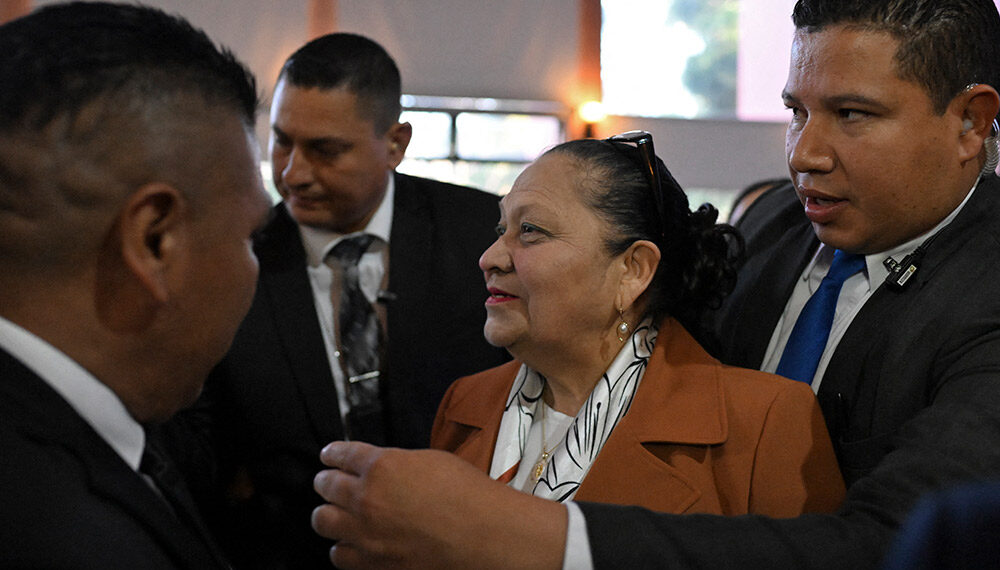
The president of Guatemala, Bernardo Arévalo, on Thursday accused the Ministerio Público (MP) of interfering in the process to select magistrates for the country’s highest court, the Corte de Constitucionalidad (CC).
Arévalo has been locked in an ongoing dispute with Attorney General Consuelo Porras, who has been sanctioned by the United States and the European Union and labeled by critics as “corrupt” and “anti-democratic” after efforts to block the president from taking office two years ago.
Earlier on Thursday, the MP said it was investigating alleged irregularities in the voting process and carried out raids at polling sites set up at Club La Aurora and Parque Erick Barrondo, in Guatemala City, where the Colegio de Abogados y Notarios de Guatemala (CANG) was electing its principal and alternate representatives to the CC.
In posts on X, the president described the operation as a “spurious” action aimed at “interfering” in the election and “intimidating” voters in order to “alter” the outcome.
Voting was temporarily disrupted by the searches, the frisking of the CANG president, and a power outage caused by the explosion of a nearby transformer. Once the process resumed and concluded, the association elected Astrid Jeannette Lemus Rodríguez as one of the five members of the Constitutional Court, with Luis Fernando Bermejo Quiñónez chosen as her alternate.
“They failed in their attempt to hijack the elections (…). Honest lawyers won,” Arévalo wrote in a subsequent message.
-

 International5 days ago
International5 days agoHead-of-state diplomacy key to guiding China–U.S. ties, Beijing says
-

 International5 days ago
International5 days agoFlorida judge sets 2027 trial in Trump’s $10 billion lawsuit against BBC
-

 Central America2 days ago
Central America2 days agoGuatemala’s president denounces MP raids during Constitutional Court election
-

 International5 days ago
International5 days agoTrump administration to end special immigration operation in Minnesota
-
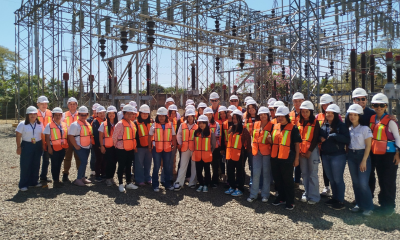
 Central America2 days ago
Central America2 days agoTeens visit ETESAL substation to learn about responsible energy use
-
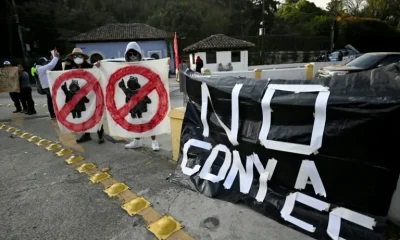
 Central America15 hours ago
Central America15 hours agoGuatemala’s Attorney General Consuelo Porras Loses Bid for Constitutional Court Seat





















































































